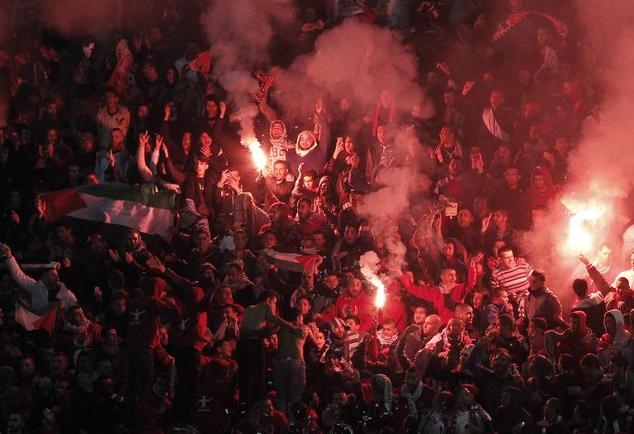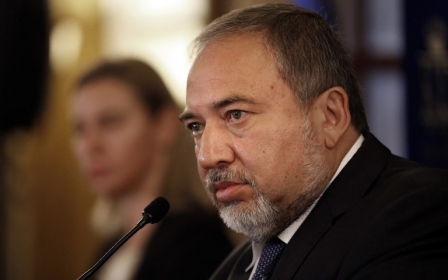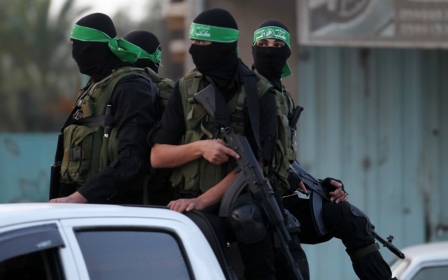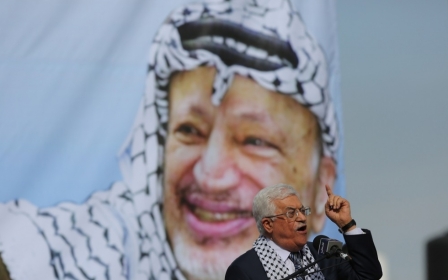Questions fly as Israel links Hamas to foiled bomb attack on Jerusalem Stadium

A network of Hamas militants in the West Bank that sought to carry out attacks on Israelis, including an attack on Jerusalem’s biggest football stadium and the city’s light rail system, was directed from a base in Turkey with recruits gathered in Jordan, Israeli security authorities said on Thursday.
More than 30 Palestinians, suspected of being operatives in the network, were arrested in September, and guns, ammunition, and explosive material were also captured, the Shin Bet security agency said in a statement.
In the Gaza Strip, where Hamas is dominant, a spokesman for the group said: "We have no information about these Israeli claims ... It is clear Israel wanted to create a new story to divert the world's attention away from the escalation in Jerusalem."
The Holy City is on edge following a series of deadly "lone-wolf" attacks on Israelis, including deliberate hit-and-run incidents by Palestinian drivers.
Eleven Israelis have been killed, including four rabbis and a policeman stabbed and shot by Palestinians in a Jerusalem synagogue. Twelve Palestinians have also been killed, including several of those who carried out the attacks.
The foiled plots, unearthed on Thursday, Shin Bet said, were part of a plan by Hamas to "establish a military wing in the West Bank" - a landlocked territory occupied by Israel and overseen by Palestinian leader Mahmoud Abbas.
Hamas, Shin Bet said, was hoping to provoke a military response from Israel which might, indirectly, lead to the toppling of Abbas’s government.
Analysts said Shin Bet’s characterisation of Hamas’ motivations was “strange,” pointing out that outside of Gaza the organisation was on the run with many of its leaders jailed by Israel and the Palestinian Authority.
“I’m sure one day Hamas would like to replace Abbas in the West Bank but for now it is more likely to sit and wait it out,” said Ofer Zalzberg, an Israel/Palestine analyst with the International Crisis Group.
“With the failure of peace negotiations, ongoing construction of Israeli settlements and mounting tensions in Jerusalem Hamas is calculating that the PLO may soon implode, maybe what they are establishing is an infrastructure to be ready for that moment.”
The Turkey connection
Turkey’s implication in the foiled Hamas plot has strained already tense relations between Jerusalem and Ankara.
During his last visit to the US, Israel’s Defence Minister, Moshe Ya'alon, warned of Turkey's close ties with Hamas.
"Turkey is playing a cynical game. Hamas is sponsored by Turkey and Qatar, and the former is a NATO member. It's inconceivable that this terror group would be allowed to have two headquarters - one in the Gaza Strip and the other in Istanbul," Ya'alon said.
The once-close relations between Israel and Turkey suffered a blow in 2010 when Israeli commandos raided the Mavi Marmara, a ship trying to breach Israel’s maritime blockade imposed on the Gaza Strip. Nine Turkish nationals were killed in the raid.
Turkey currently serves as the home for Hamas operative Saleh al-Arouri, whom the Palestinian movement's website identifies as the founder of the Izz al-Din al-Qassam Brigades, Hamas's armed wing, in the West Bank.
Arouri was originally recruited by Hamas while studying at Hebron University, and he has served as a high-ranking military leader for the movement since the early 1990s, according to US court documents.
After serving several jail sentences, Israel released Arouri in March 2010, possibly as part of a deal to secure the release of captured Israeli soldier Gilad Shalit.
When Hamas broke ties with Syrian President Bashar al-Assad over his brutal suppression of a popular uprising, Arouri left Damascus for Istanbul.
In October 2012 Asouri travelled from Turkey to Gaza to attend the visit of Qatar's emir to the Hamas-controlled Gaza Strip.
New MEE newsletter: Jerusalem Dispatch
Sign up to get the latest insights and analysis on Israel-Palestine, alongside Turkey Unpacked and other MEE newsletters
Middle East Eye delivers independent and unrivalled coverage and analysis of the Middle East, North Africa and beyond. To learn more about republishing this content and the associated fees, please fill out this form. More about MEE can be found here.




